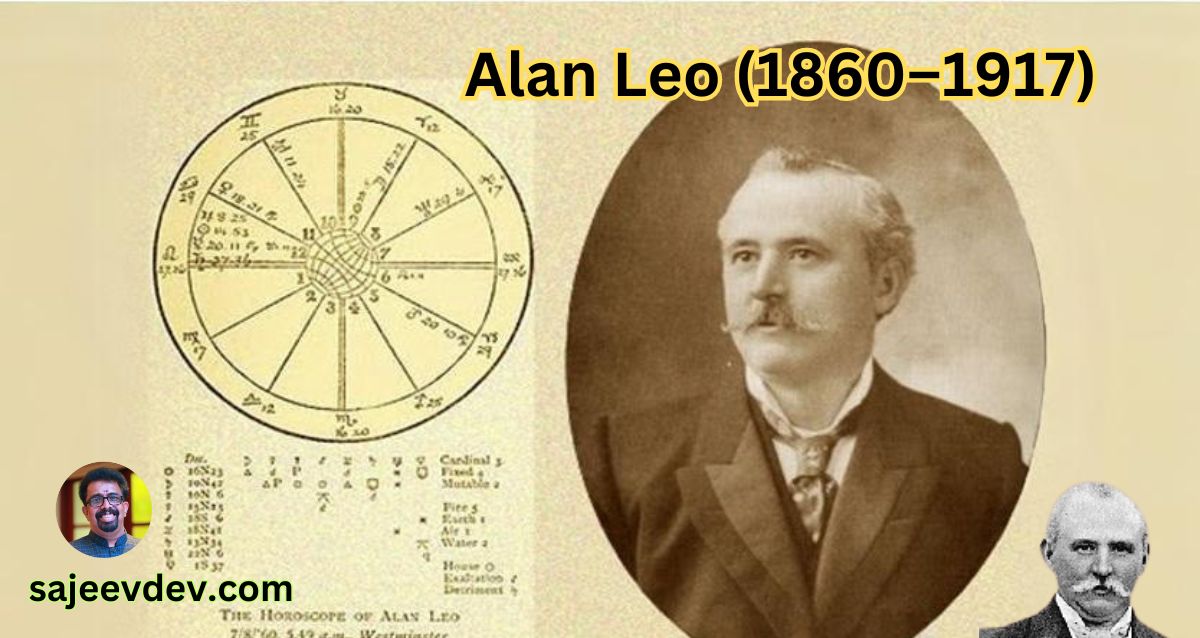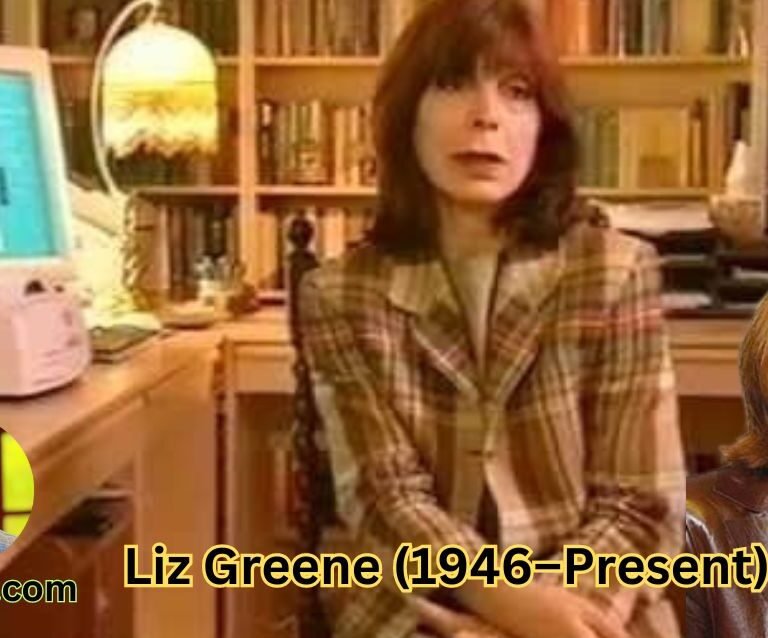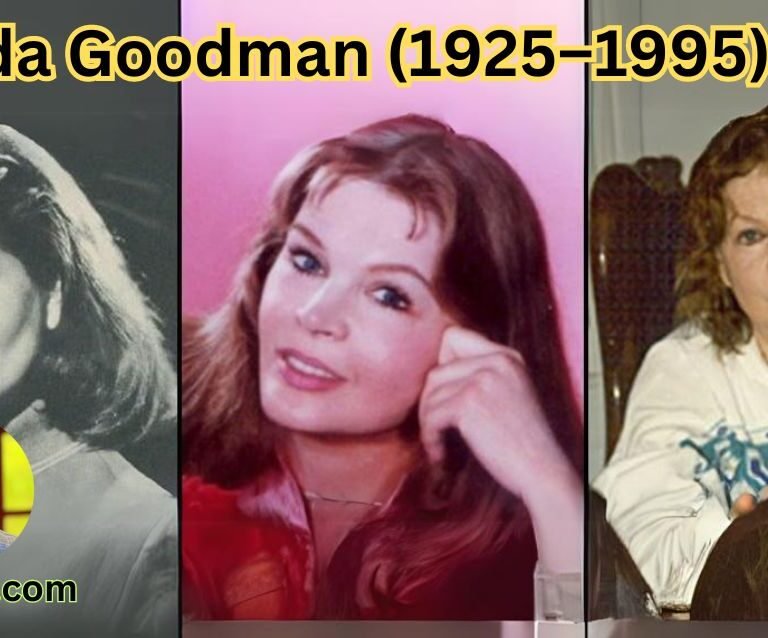Alan Leo
Alan Leo, born on August 7, 1860, in London, England, is widely recognized as a pivotal figure in the evolution of astrological practice. His contributions, which emerged during a time of significant historical and cultural change, have solidified his reputation as the ‘father of modern astrology.’ As a British astrologer and author, Leo played an essential role in transitioning astrology from a largely esoteric discipline into a more widely accepted and accessible practice.
During the late 19th and early 20th centuries, astrology was often associated with mysticism and relegated to the fringes of society. Alan Leo sought to professionalize astrology by introducing a systematic approach that incorporated psychological principles and the importance of personal experience. His emphasis on the psychological aspects of astrology marked a significant departure from traditional methodologies that focused solely on the prediction of events. This shift towards a more individualized understanding allowed astrology to resonate with a broader audience, paving the way for its acceptance in contemporary society.
Leo’s writings, including his seminal works such as “How to Judge a Nativity” and “The Astrology of Personality,” emphasized the importance of the natal chart as a tool for self-discovery rather than merely a means of fortune-telling. He established the Astrological Lodge of London in 1915, fostering a community of aspiring astrologers and advancing astrological education through lectures and courses. His advocacy for astrology as a legitimate field of study and as a tool for personal growth has left a lasting legacy that continues to influence modern practitioners.
In the realm of astrology, Alan Leo’s impact is profound, as he succeeded in revolutionizing the practice and establishing it as a credible avenue for self-exploration and insight, securing his position as a cornerstone in the history of modern astrology.
Early Life and Background
Alan Leo, widely recognized as the father of modern astrology, was born on August 7, 1860, in a family that was steeped in a sense of wonderment about the celestial bodies. His early years were spent in the vibrant cultural milieu of England, which undoubtedly fostered his fascination with esoteric subjects. Leo’s upbringing in a religious household instilled in him a profound sense of inquiry, pushing him to seek explanations beyond conventional beliefs. This inclination was pivotal in shaping his future pursuits within astrology.
Leo’s formal education began at a local school in England, where he exhibited an exceptional aptitude for subjects such as mathematics and science. His intellectual curiosity would later blend seamlessly with his passion for astrology, as he believed these disciplines shared underlying principles. Despite facing numerous challenges during his formative years, including the loss of his father at a young age, Leo remained undeterred in his academic and personal endeavors. He sought solace in literature, often delving into texts that explored astrology and similar metaphysical fields.
Influenced by prominent figures in astrology and the wider occult, he encountered various philosophical ideas that sparked his interest further. Leo was particularly inspired by the Theosophical Society, which sought to promote spiritual understanding and the pursuit of truth. This association helped him cultivate his own astrological beliefs, merging them with a broader spiritual framework. As he navigated through life, his childhood experiences and educational background laid a robust foundation for his later contributions to astrology. These formative years were crucial in molding his ideas about the universe and humanity’s place within it, propelling him towards becoming a central figure in the evolution of modern astrological practices.
Shift from Prediction to Self-Understanding
Alan Leo, often referred to as the father of modern astrology, fundamentally transformed the perception and practice of astrology through his revolutionary approach. Traditionally, astrology was predominantly viewed as a means for predicting future events, often turning into a form of fortune-telling that catered to those seeking insight into their upcoming fortunes or misfortunes. Leo challenged this notion, advocating for a shift towards self-awareness and personal growth. His vision was not merely to forecast what lay ahead but to utilize astrological insights as a tool for introspection and understanding oneself.
By redefining astrology in this manner, Alan Leo made the practice more accessible to the general public. The emphasis on personal development resonated with individuals who were eager to explore their inner selves, rather than solely focusing on external predictions. This transition highlighted the importance of understanding one’s own behavior, character, and potential, thus allowing astrology to assume a more psychological and therapeutic dimension. Leo’s methodologies encouraged individuals to utilize their natal charts to comprehend their strengths, weaknesses, and intrinsic motivations.
The implications of Leo’s approach extended beyond mere self-awareness; they fostered spiritual development, culminating in a more holistic view of a person’s life path. By integrating self-discovery into astrology, Leo laid the groundwork for a burgeoning interest in esoteric studies, where individuals sought not only knowledge about their astrological signs but also a deeper understanding of their personal journeys. This shift has left a lasting legacy in modern astrological practices, allowing astrology to emerge as a validated tool for self-exploration and growth.
Contributions to Astrology: Books and Writings
Alan Leo, often regarded as the father of modern astrology, made substantial contributions to the field through his extensive literary works. His writings not only elucidated complex astrological concepts but also laid the groundwork for a more approachable understanding of astrology for the general public and practitioners alike. Among his most influential works is “The Art of Synthesis,” where Leo explored the integration of astrological elements to form a cohesive understanding of an individual’s chart. This book emphasized the importance of synthesizing various astrological factors rather than viewing them in isolation, fundamentally shifting the way astrologers interpreted charts.
Another significant work is “Astrology for All,” in which Leo aimed to democratize astrology, making it accessible to a wider audience. He presented the basic principles of astrology in a straightforward manner, focusing on providing insight rather than solely technical expertise. This book played a pivotal role in popularizing astrology during the early 20th century, encouraging enthusiasts to engage with the subject matter on a personal level.
In addition to these foundational texts, Leo authored “The Key to Your Own Nativity,” which focused on natal astrology. In this work, he aimed to guide individuals in understanding their own birth charts, highlighting the applicability of astrology in everyday life. His emphasis on personal horoscopes allowed a diverse audience to appreciate astrology not merely as a mystical practice but as a tool for self-discovery and personal growth.
Leo’s writings were not only instrumental in presenting astrology as a legitimate field of study, but they also fostered community among practitioners. By laying the groundwork for a modern approach to astrology, he influenced generations of astrologers and enthusiasts, ensuring that his ideas resonate through the practice even today. His clear, engaging writing style helped shift perceptions and encouraged wider acceptance and understanding of astrology as a valuable discipline.
Founding of the Astrological Lodge of London
Alan Leo, a central figure in the world of astrology, played a crucial role in the establishment of the Astrological Lodge of London in 1912. This institution was more than just a meeting place; it served as a hub for scholars, practitioners, and enthusiasts dedicated to the study and practice of astrology. The lodge was founded with the intent to promote astrology as a legitimate field of inquiry and to foster a sense of community among those with an interest in this ancient art.
The purpose of the Astrological Lodge of London extended beyond mere gatherings; it aimed to provide educational opportunities and resources for astrologers at all levels. The organization facilitated lectures, discussions, and workshops, creating an environment where individuals could deepen their understanding of astrological principles. Alan Leo’s vision for the lodge included an emphasis on ethical practice and the importance of grounding astrological work in scientific inquiry, which was particularly significant during a time when astrology faced skepticism from the broader scientific community.
The impact of the Astrological Lodge on the astrological community was profound. It attracted a diverse membership that included some of the most prominent astrologers of the time, fostering an intellectual and supportive atmosphere. The lodge not only served as a venue for research but also encouraged spiritual discussions that enriched the astrological landscape. Members engaged in critical dialogues about the implications of astrology on personal and collective lives, emphasizing its relevance in modern society.
Over the years, the Astrological Lodge of London has maintained its status as a leading institution within the realm of astrology. It continues to be a pivotal location for furthering astrological education and research, perpetuating Alan Leo’s legacy as the Father of Modern Astrology. The lodge’s ongoing commitment to nurturing astrological knowledge solidifies its role as an essential component within the global astrological community.
Philosophy of Astrology as a Spiritual Tool
Alan Leo, often regarded as the Father of Modern Astrology, underscored the profound role of astrology as a significant tool for spiritual growth and personal development. He believed that astrology transcends mere predictive powers; instead, it serves as a mirror reflecting one’s internal landscape. By understanding astrological influences, individuals gain insights into their motivations, desires, and potential challenges, ultimately leading to a deeper sense of self-awareness.
Central to Leo’s philosophy is the idea that astrology can guide individuals in their quest for self-discovery. He advocated that by studying their natal charts, people can unlock the mysteries of their personality traits, strengths, and weaknesses. This self-knowledge allows individuals to make informed decisions aligned with their true nature, rather than being swayed by external circumstances or societal expectations. Consequently, astrology fosters a sense of empowerment, encouraging people to embrace their authentic selves.
Additionally, Leo emphasized that astrology is not deterministic. Instead of viewing celestial movements as fixed commands, he presented them as influences that interact with personal free will. This perspective allows for an empowering approach to understanding one’s life path, which can change based on choices made. By acknowledging the interplay between astrology and personal agency, individuals can leverage astrological insights to navigate challenges and pursue meaningful goals.
Leo’s framework positions astrology as a constructive framework for spiritual enlightenment. Through its principles, individuals can engage in introspection and ponder their purpose in life. Moreover, such exploration can lead to a profound sense of connection with the cosmos, cultivating not only personal growth but also a broader understanding of their place within the universe. This philosophy continues to resonate in contemporary astrological practices, highlighting its enduring relevance as a tool for spiritual advancement.
Influence on Modern Astrological Practices
Alan Leo, often regarded as the Father of Modern Astrology, has significantly shaped contemporary astrological practices through his innovative ideas and methodologies. His approach favored a more psychological and humanistic interpretation of astrology, moving away from the deterministic views prevalent in earlier traditions. This paradigm shift laid the groundwork for a more nuanced understanding of the individual, fostering the rise of modern astrological counseling techniques.
One of Leo’s most influential contributions was the emphasis on the astrological birth chart as a tool for self-understanding rather than mere fortune-telling. By promoting the idea that astrology could guide personal development and self-awareness, he has left an indelible mark on how practitioners engage with their clients today. Many modern astrologers adopt his principles, intertwining psychological elements with astrological readings to provide insights that resonate on a deeper personal level.
Furthermore, Leo’s introduction of the sun sign theory paved the way for the popularization of astrology in general. The sun sign became a gateway for individuals to explore astrology further, leading to the widespread acceptance of astrological services in various forms, including horoscopes in newspapers and magazines. This accessibility has significantly contributed to the current landscape of modern astrology, where individuals often seek astrological insights to navigate life’s challenges.
Additionally, Alan Leo’s publications and teachings continue to inspire new generations of astrologers. His methodologies are often incorporated into astrology courses and literature, solidifying his influence across various astrological schools of thought. Ultimately, his legacy endures in the way astrology is practiced and perceived today, marking him as a pivotal figure whose ideas and innovations continue to resonate within the astrological community.
Legacy and Recognition
Alan Leo, often hailed as the Father of Modern Astrology, left behind a profound legacy that continues to influence the practice of astrology today. After his passing in 1917, his work gained significant recognition both within astrological circles and the wider spiritual community. Leo’s innovative ideas on astrology, particularly his emphasis on the psychological aspects of natal charts, have reshaped how practitioners interpret astrological charts and engage with clients.
In the years following his death, several institutions and organizations have sought to honor his contributions to astrology. The establishment of the Alan Leo Association further solidified his place in the astrological community, commemorating his legacy through educational resources, workshops, and events. This organization is dedicated to promoting the principles he championed, encouraging both beginners and seasoned astrologers to develop a deeper understanding of astrology as a holistic practice.
Leo’s writings, such as “The Art of Synthesis” and “Astrology for All,” have remained essential reading for students of astrology, and they are frequently cited in contemporary astrological literature. His focus on the importance of integrating various astrological techniques has resonated with modern astrologers, leading to a richer, more nuanced approach to astrological readings.
Moreover, Alan Leo’s influence is reflected in the increasing acceptance of astrology among the general public. His pioneering work has paved the way for astrology to move from the fringes of spirituality into mainstream awareness. This broader recognition has engendered a renewed interest in astrological studies and practices, leading to numerous tributes, including astrology conferences that celebrate his contributions.
In conclusion, Alan Leo’s legacy remains vibrant, influencing generations of astrologers and continuing to inspire interest in the field of astrology. His efforts have not only transformed the practice of astrology but have also established a framework that encourages ongoing exploration and understanding within the spiritual domain.
Alan Leo’s Continued Relevance
Alan Leo’s significant contributions to astrology remain influential in contemporary spiritual practices and self-discovery methodologies. His pioneering approach to astrology emphasized the importance of individual interpretation and personal growth, creating a bridge between traditional astrological teachings and modern spiritual needs. Today, more than ever, individuals are seeking tools that will aid them in understanding themselves and their life paths, making Leo’s teachings particularly relevant in this quest for self-knowledge.
The resurgence of interest in astrology can be partly attributed to the shift towards holistic practices that prioritize self-awareness and introspection. Leo’s focus on the psychological and spiritual dimensions of astrology laid the foundation for a more nuanced understanding of how celestial energies can affect personal experiences. His work encourages practitioners to view astrology not just as a predictive tool but as a guide for personal development, a notion that resonates profoundly with individuals navigating the complexities of modern life.
Moreover, the accessibility of astrological resources through platforms like social media has allowed Leo’s concepts to reach a broader audience. His ideas about tailored astrological interpretations encourage seekers to engage deeply with their charts, fostering a sense of empowerment and autonomy in the process. As many people explore astrology as a means to unlock their potential and navigate challenges, they inherently follow the path that Alan Leo illuminated over a century ago.
In retrospect, Alan Leo’s teachings continue to inspire and guide both seasoned astrologers and newcomers alike. By emphasizing astrology’s relevance in personal growth, he has immortalized his legacy as the father of modern astrology, ushering in a deeper understanding of ourselves and our connections to the universe.









